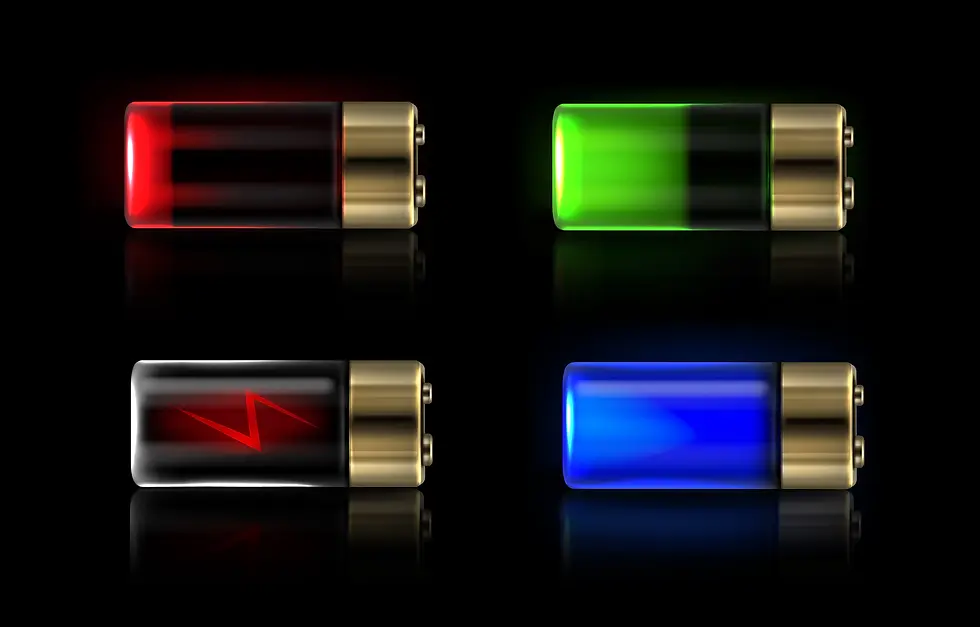Is It Safe to Store Lithium Batteries in the House?
- Lithi+
- Jul 30, 2025
- 4 min read

Understanding the Risks of Lithium Battery Storage at Home
Lithium-ion batteries power everything from smartphones and laptops to power tools and e-bikes. Their energy density makes them efficient, but also introduces serious safety risks if not handled and stored correctly.
When consumers ask, “Is it safe to store lithium batteries in the house?”, the short answer is: yes, but only with proper safeguards. Without appropriate storage, charging, and disposal methods, these batteries pose hazards such as:
Thermal runaway
Fire and explosion
Toxic gas emission
Electrical short circuits
Environmental contamination
Let’s explore how to mitigate those risks and protect your home and family.
Why Lithium Batteries Can Be Dangerous Indoors
What Is Thermal Runaway?
Thermal runaway occurs when a battery cell overheats uncontrollably, triggering a chain reaction that can lead to fires or explosions. This typically results from:
Overcharging
Physical damage
Manufacturing defects
Exposure to high temperatures
Even a seemingly intact battery can become unstable if stored incorrectly or charged improperly indoors.
Defective or Damaged Batteries Are High-Risk
Improper handling can damage a lithium battery’s internal structure. Dropping, crushing, puncturing, or exposing it to moisture or heat can compromise its integrity. A defective battery has a significantly higher risk of:
Short-circuiting
Igniting spontaneously
Releasing harmful gases
At home, these risks increase when batteries are stored in closets, drawers, or garages without ventilation or fire-rated containment.
Safe Home Storage Guidelines
While you can safely store lithium-ion batteries in your house, you must follow specific safety practices to minimize risks.
1. Use Fire-Rated Storage Cabinets
At LithiPlus, we recommend fire-rated lithium battery storage cabinets designed to contain heat, flames, and gas emissions. These cabinets offer:
90-minute fire protection from inside and outside
Self-closing, oil-damped doors
Integrated smoke detectors and temperature sensors
Ventilation systems to reduce heat buildup
They come in various sizes and configurations—ideal for homes with multiple rechargeable tools, gadgets, or backup power solutions.
2. Avoid High-Temperature Areas
Never store batteries near ovens, water heaters, direct sunlight, or heating vents. Batteries perform best between 15°C and 25°C (59°F to 77°F). High heat accelerates chemical degradation and increases the risk of thermal events.
3. Store Separately and Upright
Each battery should be stored in a non-conductive, fire-resistant container. Avoid stacking them or keeping them near flammable items (e.g., paper, cleaning fluids). Use individual compartments or dedicated cabinets to:
Prevent contact between battery terminals
Avoid accidental activation
Limit chain reactions in case of fire
4. Never Store Damaged Batteries Indoors
If a battery appears bloated, leaking, dented, or smells burnt, do not keep it inside the house. Use quarantine containers—like DENIOS’ UN-approved transport boxes—for defective or critically faulty batteries. These containers:
Prevent thermal runaway
Contain fire or explosion risk
Comply with hazardous materials transport regulations
Charging Lithium Batteries Safely at Home
Always Monitor Charging
One of the most common causes of lithium battery fires at home is unattended charging. Never leave batteries charging overnight or while you're away.
Use charging cabinets with:
Built-in grounded sockets
Ventilation systems
Automatic fire suppression systems
Fire resistance up to 90 minutes
LithiPlus recommends choosing cabinets equipped with intelligent sensors to shut off charging in the event of overheating.
Avoid Cheap or Counterfeit Chargers
Always use the manufacturer-recommended chargers. Third-party or cheap chargers often lack overcharge protection and may deliver incorrect voltage levels, increasing fire risk.
Disposing of Lithium Batteries the Right Way
Never Throw Batteries in Household Trash
Improper disposal can cause fires in garbage trucks or landfills and introduce toxic chemicals into the environment. Follow these best practices:
Use certified battery disposal centers
Drop off at local electronics retailers with recycling programs
Store used batteries in non-conductive, dry containers until you dispose of them
How to Handle Defective or Leaking Batteries
If a battery is leaking fluid, emitting heat, or showing signs of swelling, follow these steps:
Place it in a quarantine container with fire suppression granules (e.g., PyroBubbles®).
Isolate it outdoors or in a ventilated space, away from flammables.
Contact a local hazardous waste facility for proper disposal.
What If You Have Large Quantities of Batteries at Home?
More homeowners are storing backup power solutions, solar energy batteries, or large e-bike battery packs. In these cases, it’s wise to treat your home setup like a commercial battery storage environment.
LithiPlus offers modular, fire-protected storage systems designed to:
Protect homes from fire spread
Keep battery temperatures stable
Ensure compliance with local safety regulations
Consult with our experts for personalized storage recommendations.
Conclusion: Is It Safe to Store Lithium Batteries in the House?
Yes—but only if you store and handle them responsibly.
The growing dependence on lithium-powered devices means homeowners must educate themselves on the risks and best practices of storage. Whether it’s a power tool, a phone, or a solar battery backup, following the right storage principles can protect your home and loved ones.
LithiPlus is your partner in home lithium battery safety. With tested fire-resistant cabinets, monitored charging stations, and secure transport solutions, we help you keep power—and peace of mind—on your side.
_edited.png)



Comments